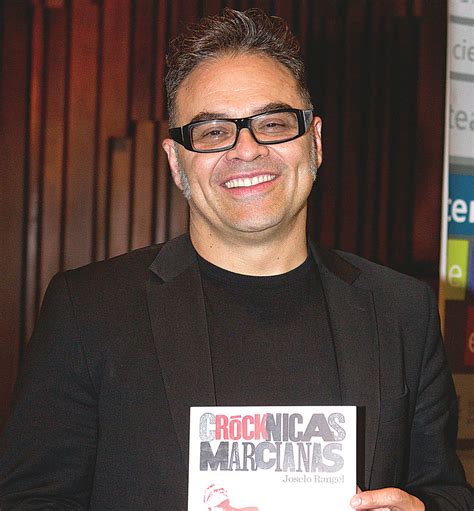A Quote by Jia Zhangke
I think the new technologies have become pervasive in our society, such as cellphones and the internet, and they've insidiously affected our personal sense of space and belonging.
Related Quotes
When we can let go of what other people think and own our story, we gain access to our worthiness—the feeling that we are enough just as we are and that we are worthy of love and belonging. When we spend a lifetime trying to distance ourselves from the parts of our lives that don’t fit with who we think we’re supposed to be, we stand outside of our story and hustle for our worthiness by constantly performing, perfecting, pleasing, and proving. Our sense of worthiness—that critically important piece that gives us access to love and belonging—lives inside of our story.
We don't think of ourselves in Cafe Tacvba as representatives. When we go and make new material, we feel that our creations are more authentic if we think of ourselves. We don't say, "Let's be the representatives and show the moment that our society is in." But when it comes to performing and we visit other countries, like New York, many people approach us, people who are outside of their own country, and we become a referent. Our shows become this sort of ritual, and our performances become that moment of identity.
We have always dovetailed our cognition to our tools, but when our tools start dovetailing back, where do I end and where does the tool begin? It is going to be a really Twilight Zonish situation. It is definitely interesting. Once Google is in a blood cell sized device in our brain, do we become part Google? There are certainly interesting things to think about and provocative questions, but I don't think those provocative questions are going to do anything to slow down the onset of these technologies arriving and becoming even more pervasive.
Belonging is the innate human desire to be part of something larger than us. Because this yearning is so primal, we often try to acquire it by fitting in and by seeking approval, which are not only hollow substitutes for belonging, but often barriers to it. Because true belonging only happens when we present our authentic, imperfect selves to the world, our sense of belonging can never be greater than our level of self-acceptance.
THE POWER OF THE GROUP We all want to feel a sense of belonging. This isn’t a character flaw. It’s fundamental to the human experience. Our finest achievements are possible when people come together to work for a common cause. School spirit, the rightful pride we feel in our community, our heritage, our religion, and our families, all come from the value we place on belonging to a group.
We've been surrounded by images of space our whole lives, from the speculative images of science fiction to the inspirational visions of artists to the increasingly beautiful pictures made possible by complex technologies. But whilst we have an overwhelmingly vivid visual understanding of space, we have no sense of what space sounds like.
Flying has changed how we imagine our planet, which we have seen whole from space, so that even the farthest nations are ecological neighbors. It has changed our ideas about time. When you can gird the earth at 1,000 m.p.h., how can you endure the tardiness of a plumber? Most of all, flying has changed our sense of our body, the personal space in which we live, now elastic and swift. I could be in Bombay for afternoon tea if I wished. My body isn't limited by its own weaknesses; it can rush through space.
Our stories are not meant for everyone. Hearing them is a privilege, and we should always ask ourselves this before we share: "Who has earned the right to hear my story?" If we have one or two people in our lives who can sit with us and hold space for our shame stories, and love us for our strengths and struggles, we are incredibly lucky. If we have a friend, or small group of friends, or family who embraces our imperfections, vulnerabilities, and power, and fills us with a sense of belonging, we are incredibly lucky.
Our age has become so mechanical that this has also affected our recreation. People have gotten used to sitting down and watching a movie, a ball game, a television set. It may be good once in a while, but it certainly is not good all the time. Our own faculties, our imagination, our memory, the ability to do things with our mind and our hands-they need to be exercised. If we become too passive, we get dissatisfied.





























